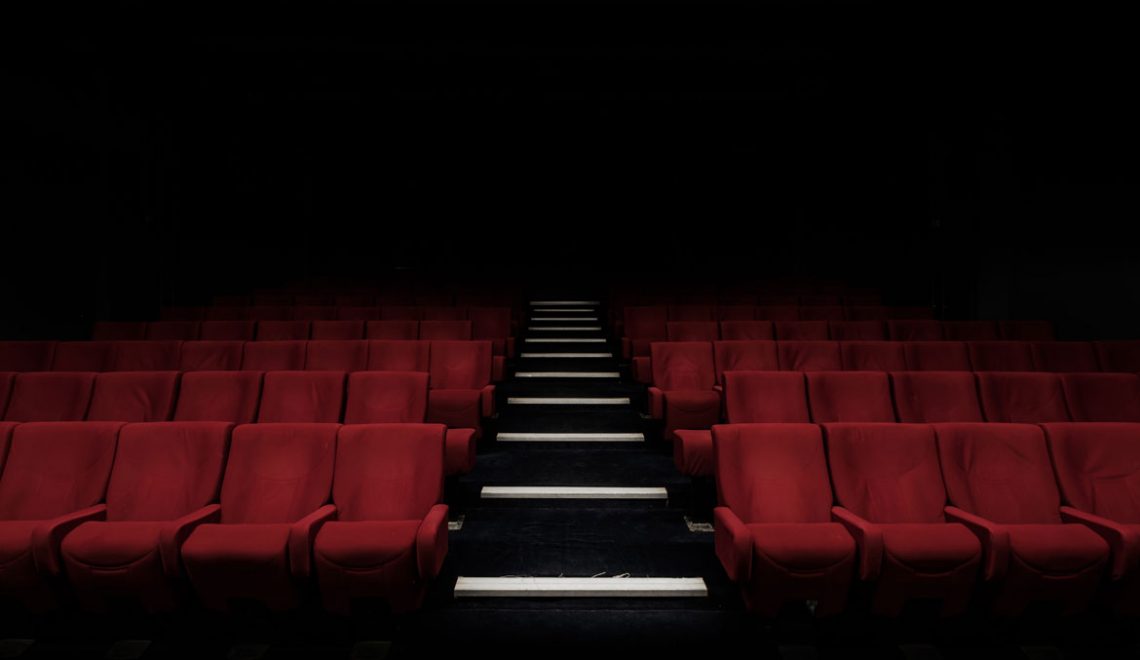
David Poeppel is Professor of Psychology and Neural Science at New York University (NYU). In addition to that, he is a Scientific Member and Director of the Neuroscience Department at the Max Planck Institute for Empirical Aesthetics in Frankfurt, Germany. In this interview, we have touched on a wide range of topics from his most inspiring lecturer, to his favourite books, spoiler alert – one of them is Rules and Representations by Noam Chomsky. It has been a joy to interview David and we hope you enjoy reading about his adventures.
Introduction
Q: What is your dinner party monologue for when someone says “and what do you do?”
A: I do brain science. In particular, I do human brain science. I work on how language is processed in the brain – for example, why can we understand anything at all, given that a bunch of mechanical waves emanating from some mouth, the speaker’s, arrive at the ear of the listener and must be translated into a code that the receiver’s brain can decipher? It’s actually deeply mystifying how this works… The way I think of my job is more or less like the job of a car mechanic: I want to know what the parts of the machine are and how all the parts can be taken apart and put back together so that the machine works. Just imagine a picture of a car, but totally taken apart, and all the parts lined up on the garage floor. I am interested in the parts list of the brain – so what neuroscience can tell us – as well as the parts list of language – so what linguistics and psychology can tell us. I take seriously the challenge that what we learn from both neurobiology and language research need to be accounted for, one discipline is not ‘more basic’ than the other. So I worry about what these parts lists are and worry about how to align them. How can the basic parts (or, depending on the pretentiousness of the dinner party, the ‘primitives’ or the ‘ontology’) of language research (say syllable or noun or concatenation) be unified with the basic parts of neurobiology (say neurone or column or oscillation)? To do this kind of work, I use all sorts of different brain imaging methods, paired with behavioural studies, theoretical ideas, and – one hopes – common sense.
Early Life
Q: Could you tell us about where you grew up; were you a rural or city dweller?
A: I grew up in Germany (German dad) and the US (parents’ work), and also spent a lot of time in Venezuela (Venezuelan mom). I went to elementary school in Cambridge, Massachusetts – the Cambridge Friends School, which I remember liking very much. I went to the equivalent of middle and high school in Munich, Germany, the Maximiliansgymnasium München. That school experience was unusual… and the polar opposite of a 1970s Cambridge Friends School experience. People who attended that school in the urban center of Munich include eminent scientists like Max Planck and Werner Heisenberg, right-wing politicians like the longtime governor of Bavaria Franz-Josef Strauss, and left-wing countercultural figures like Andreas Baader, the founder of the Baader-Meinhof terrorist organisation. The school was small and full of interesting and surprising characters… So during my formative school years, I attended a profoundly conservative Bavarian Gymnasium with a focus on classics, so many years of Latin and Greek.
Q: What subject(s) did you excel at in school, and which did you find most challenging?
A: I was good at sports. And I excelled at sneaking in a smoke during recess. I found everything else in school challenging. Well – I did alright in Latin and German Literature, but I was not very good at most of the conventional academic subjects.
Q: Can you recall any reoccurring comments from your school reports?
A: I’m afraid so. I was a bad student, and also not very ‘well aligned with authority.‘ My discipline in school left much to be desired and my grades were appalling. My report card comments were accordingly not all that enthusiastic (Doesn’t pay attention. Interrupts class. Rude to teachers. Shows no interest.) And those were the nice ones…
Q: Did you ever have a eureka moment where you thought, “this is the subject I want to study”?
A: No. Later on in high school, maybe with 16 or so, I discovered that sports and girls were certainly favourite subjects, but I also did read a great deal and began engaging with what I read more systematically. I discovered that I liked reading, I liked language, I liked philosophy. I most certainly did not enjoy the sciences in school. In fact, my training in the sciences was so bad that it took me years to recover from that. It’s kind of amazing that I ended up in a career as a scientist.
Q: Can you remember the point at which you fell in love with your subject?
A: I’m actually still sorting that out. I very much like my subject, but we are basically still dating; whether I’m in love for real remains to be seen. We have a complicated relationship.
Academic Education
Regarding your undergraduate studies:
Q: Which University did you study at, and was it your first choice?
A: I studied at MIT. Yes, that was my first choice.
Q: What undergraduate degree did you study for at University, and in hindsight would you select the same subject again?
A: I studied biology and brain and cognitive sciences. If I had another shot at it, I would study engineering and music and architecture – as well as brain and cognitive sciences again.
Q: Can you remember a University lecturer who really inspired you?
A: Noam Chomsky and Susan Carey.
Regarding your postgraduate studies:
Q: What motivated you to further pursue academia?
A: I really benefitted from some of my undergrad courses, I enjoyed a lab experience, I knew several grad students and professors that I liked and admired – and, honestly, I needed to find a job after graduation. There were both intellectual and pragmatic considerations that led me to pursue a PhD.
Q: What institution(s) did you study at in your pursuit of postgraduate education?
A: MIT.
Q: What was the title of your PhD thesis, and how would you explain your findings to a novice?
A: My PhD thesis was called ‘The neural basis of speech perception’. The message that is easiest to convey is that several of the dissertation’s chapters challenged the deeply held belief that speech perception – one part of language comprehension – is strongly lateralized to one hemisphere (typically the left, so-called dominant hemisphere). My thesis work was among the first to establish that speech perception is a neurocognitive process that is very clearly executed by both hemispheres. That position is now, pretty much, the accepted view. Phew!
Q: If you had your time as a student again, what would you do, if anything, differently?
A: I would learn way more math and engineering, I would read more, and I would ask more questions of my advisors – both about the science itself and about the nuts and bolts of the job as an academic and professor. We were remarkably naïve about the world of science when we graduated.
Research Focus
Q: Tell us about your current research focus?
A: At the moment, I work in an extremely privileged situation, because I have the good fortune to be affiliated with two fantastic institutions. In Germany, I am the director of a Max-Planck-Institute in Frankfurt, and my department (neuroscience) works on a wide range of questions on the brain basis of speech, language, and music processing – as well as on questions of aesthetics (i.e. how come you like certain music, poetry, or visual art to begin with?) In the US, I am a professor of psychology and neural science at NYU, and my lab focuses on a range of questions about hearing speech, and language processing as well. We explore these from relatively low level (i.e. basics of auditory processing) to relatively high-level perspectives (i.e. the nature of grammatical processing, music). Broadly speaking, my two labs work on the parts list problem (mentioned above) for the brain basis of speech, language, and music – what are the basic elements in terms of neurobiology and linguistics and music research that underlie these fundamental human capacities. One area of special interest is how these domains of experience are encoded in time, that is to say, the temporal structure of perceptual experience.
Q: What do you believe is your single most important piece of research?
A: In terms of objective impact to date, the dual stream model of speech perception developed by my friend and colleague Greg Hickok from UC Irvine and me in a series of papers since 2000 is clearly the most important. I think/hope that my current work on the role of cortical oscillations in speech and language comprehension also stands a chance of having some influence on our thinking.
Q: Within your area of study, what breakthroughs are on the horizon?
A: I am cautiously – or perhaps naively – optimistic that we will have a decent mechanistic understanding of how grammatical processing in the brain works, maybe in the next decade or two. That is to say, we may have plausible models of the processes that underlie how we combine words to form phrases (how does your brain compute “too much text” or “red wine” or “can I have another vacation?”). Sounds simple, no? But this turns out to be wickedly hard… And I suspect we will actually not know how we store words in the brain – or how we store anything – for a long time. That problem is beyond our current understanding. That also sounds simple but is incredibly complicated.
Q: Let your imagination take over for a minute and tell us what you hope your successors will be researching in 2117?
A: Suppose we understand the ‘hard disk’ of the mind/brain, that is to say how information in general and words, in particular, are stored. And suppose furthermore (which is realistic) that we understand the grammatical system of the mind/brain fully. Then my future colleagues can work, for example, on simply ‘inserting’ a language into your brain. We will have chips and neural manipulators that can insert Japanese or Potawotami or Haussa into your brain. Our understanding of words and grammars and the acquisition process itself will be so thorough and mechanistic that – when paired with our detailed understanding of the neural code itself – we will be able to insert a knowledge of language into a mind/brain. We will also be able to insert music. This all will come in handy when we need to communicate with extraterrestrial entities. Plus it could help future kids who have to go through the drudgery of school during puberty. (In fact, maybe we can do research on eliminating puberty? Bad pubescent skin?? The horrors of early heartbreak???
Q: What do you feel your professional legacy will be?
A: I hope that it will be the group of people that I have had the privilege to work with, so my students and post-docs. It is so exciting to work with these folks, and we have agreed on the basic idea to “work hard and be nice to people.” I have worked and continue to work with an amazing group of young scientists, and I hope/assume/trust that, in the long run, my legacy will be what we developed together; so that some of my work has influenced them and made incremental progress, and that their work, in turn, will influence their students and yield incremental progress, and so on. If I had to name concrete scientific results, I suppose (i) the bilateral nature of speech perception, (ii) the dual stream model of speech and language processing, and (iii) the role of neural oscillations in speech and language processing are ideas that might be pursued and ideas about which future researchers can build on some of my research. And maybe I can still come up with some new stuff – I’m not quite done yet, you know?
Current Projects
Q: Are you working on any extra-curricular projects at the moment, such as: books, podcasts, websites, or speaking?
A: I lecture often – too often, really – and I run a blog with a colleague, although I am not sufficiently active. But I am also ready, willing, and able to allocate more time to political activism and education. Present times call for desperate measures, and education – across the lifespan – is turning out to be a desperately necessary measure. The truly grotesque excrescences of our time can probably only be combated with new ways to educate ourselves and each other.
Advice and Tips
Q: If you could give your 18-year-old self one piece of advice, what would it be?
A: Learn to type really, really well; and then learn to write code really, really well; then learn how to write, short convincing arguments about whichever topic in prose form really, really well. Also, learn how to change a flat tire.
Q: What advice would you give someone looking to start, or progress his or her career in your field?
A: Read lots of the older papers, starting with the 19th-century stuff, and then have the courage to throw the ideas overboard – or not! Have respect towards your intellectual elders, but don’t romanticise their knowledge.
Q: Which book would you say has had the biggest impact on your life?
A: Very clearly Tom Stoppard’s play The Real Thing. I was an actor in this show in college (playing Max), and the lead actress (playing Annie) and I met as fellow cast members. We fell in love in real life (although we got divorced in Act I Scene 3), and got married soon thereafter. Almost 25 years of marriage and three kids later, I think it’s safe to say that The Real Thing had by far the biggest impact!
Q: If you could recommend one book to a novice in your field, what would it be?
A: The book that I will write in 10 years or so: How to study the mind and brain and not be stupid about it. But if you’re in a hurry: Rules and Representations by Noam Chomsky.
Have the courage to avail yourself of your own rational mind.
Q: Why do you think being a freethinker is important?
A: Because being a constrained, restricted, bound, un-free thinker is less fun, less forwards leaning, and less aligned with the fundamental insight of the Enlightenment: have the courage to avail yourself of your own rational mind.
Conclusion
Q: And finally, we are back at the dinner party. Someone offers you a drink, what do you ask for?
A: A vodka tonic and the check, please.
If you’d like to find out more about Professor David Poeppel you can check out his academic profile, Twitter page and Wikipedia page.
Advertisement









